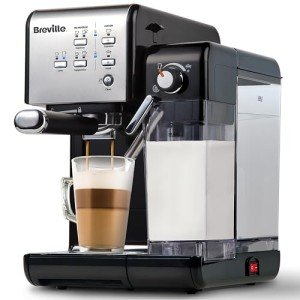10 Unquestionable Reasons People Hate High-Quality Espresso Machines
The World of High-Quality Espresso Machines: A Comprehensive Guide
Espresso has actually become a precious beverage among coffee enthusiasts worldwide, known for its abundant flavor, intense aroma, and flexibility. The heart of a great espresso depends on the machine used to brew it. High-quality espresso machines are designed to deliver the ideal shot, making them an essential investment for coffee fans. Espresso Machines Under £200 out numerous types of high-quality espresso machines, their functions, maintenance ideas, and answers to frequently asked questions.
Kinds Of High-Quality Espresso Machines
High-quality espresso machines fall under several categories, accommodating various preferences, skill levels, and budget plans. The main types consist of:
Type of Machine
Description
Ideal User
Manual Espresso Machines
Needs user ability to manage extraction and pressure. Provides the most control over the brewing process.
Experienced baristas and lovers
Semi-Automatic Machines
Integrates manual operation with automation. Users control the grind and tamping, while the machine deals with water dispersion.
Intermediate users
Automatic Espresso Machines
Automate the developing process, permitting programmable developing times and temperatures.
Casual coffee drinkers
Super-Automatic Machines
Have integrated mills and are totally automated, managing everything from grinding to brewing and steaming.
Users looking for benefit
Commercial Espresso Machines
Designed for high volume use in cafes and dining establishments, offering sturdiness and speed.
Entrepreneur
Comprehensive Overview of Each Type
Manual Espresso Machines
- Pros: Complete control over the brewing process; can produce extraordinary quality espresso.
- Cons: Requires considerable ability; time-consuming.
Semi-Automatic Machines
- Pros: Balanced control, blending manual and automatic processes; exceptional quality espresso is still attainable.
- Cons: Requires some understanding and experience to master.
Automatic Espresso Machines
- Pros: User-friendly; reduces the learning curve while still producing high-quality espresso.
- Cons: Still requires some understanding of coffee-making essentials.
Super-Automatic Machines
- Pros: Maximal convenience; little ability needed; ideal for individuals or families who want coffee without hassle.
- Cons: Higher rate point; might lack the fine-tuning abilities of manual machines.
Commercial Espresso Machines
- Pros: Built for durability and performance; often consists of functions for high-volume turns.
- Cons: Expensive; might be overkill for home use.
Secret Features to Consider
When trying to find a high-quality espresso machine, several crucial functions must be considered:
- Pressure and Pump Type: Look for machines with a minimum of 9 bars of pressure, which is essential for extracting the very best flavor from coffee beans.
- Boiler Type: Single, double, and heat exchanger boilers each affect how the machine carries out and the speed of brewing.
- Build Quality: High-quality products such as stainless-steel are more effective for sturdiness and aesthetics.
- Ease of Use and Cleaning: Some machines require substantial cleansing, while others are created for easy maintenance.
- Temperature Control: Consistent temperature level is crucial; think about machines with PID controllers for accurate control.
Advantages of High-Quality Espresso Machines
Investing in a high-quality espresso machine uses a wide range of benefits:
- Superior Quality: High-end machines permit higher control, causing tastier espresso.
- Toughness: Built to last, quality machines require less repair work and replacements.
- Personalization: Users can delight in a tailored experience by changing grind size, shot timing, and other settings.
- Increased Convenience: Automatic and super-automatic alternatives permit enthusiasts to take pleasure in espresso with very little effort.
Maintenance and Care for High-Quality Espresso Machines
To keep an espresso machine operating efficiently, regular maintenance is important. Here are pointers for maintaining a high-quality espresso machine:
Descale Regularly:
- Use a descaling option every couple of months to avoid buildup of minerals from water, which can affect taste and performance.
Clean the Brew Group:
- For machines with a detachable brew group, clean it frequently to ensure a clean extraction.
Replace Water Filters:
- Use a water filter and alter it as required to minimize impurities in your developing water.
Daily Cleanings:
- Rinse the portafilter and group head after each use to avoid oil accumulation.
Watch on the Parts:
- Monitor seals, gaskets, and other parts for wear and tear and replace them as essential.
Often Asked Questions (FAQs)
1. What is the very best espresso machine for novices?
For beginners, a semi-automatic machine often provides an excellent balance of usability and control, enabling users to learn the abilities necessary for making great espresso.
2. Are super-automatic machines worth the investment?
Yes, for those who focus on benefit and ease over control, super-automatic machines can be a worthy investment, particularly for households or hectic specialists.
3. Just how much should I expect to spend on a high-quality espresso machine?
High-quality espresso machines vary considerably in cost, with manual machines starting at a couple of hundred dollars, while super-automatic or commercial machines can surpass a number of thousand.
4. Can I make other coffee beverages with an espresso machine?
Yes, numerous espresso machines have steam wands or accessories that allow users to develop lattes, cappuccinos, and more.
5. How long do espresso machines generally last?
With appropriate maintenance, high-quality espresso machines can last over a decade, making them a long-lasting financial investment in your coffee pleasure.
High-quality espresso machines yield a transformative coffee experience, whether taken pleasure in in your home or in a commercial setting. By comprehending the types readily available, their features, and the upkeep required to keep them running effectively, consumers can make educated decisions that raise their coffee-drinking experience.
